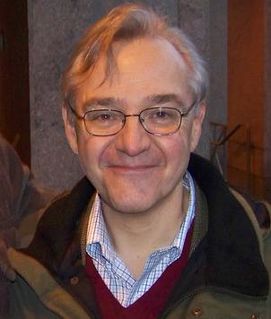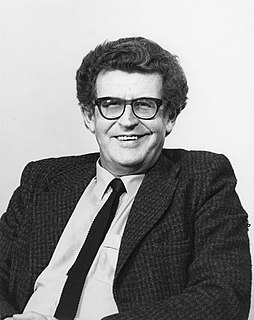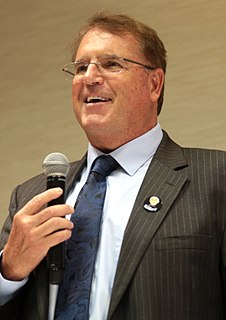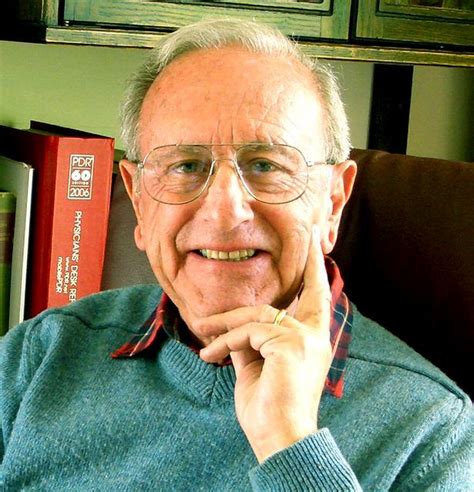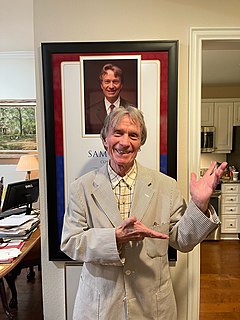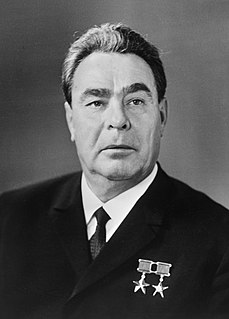A Quote by Milton Friedman
. . I think the Adam Smith role was played in this cycle i.e. the late twentieth century collapse of socialism in which the idea of free-markets succeeded first, and then special events catalyzed a complete change of socio-political policy in countries around the world by Friedrich Hayek's The Road to Serfdom.
Related Quotes
But Friedman seemed to share Friedrich Hayek's extreme and inaccurate view that socialism of the sort that Britain embraced under the old Labour Party was incompatible with democracy, and I don't think that there is a good theoretical or empirical basis for that view. The Road to Serfdom flunks the test of accuracy of prediction!
Ever read any [Friedrich] Hayek? He's great. The Road To Serfdom is like... I'm not a big political-science reader, but I actually dog-eared my copy. I ended up going back through it and writing a précis, I was so impressed by this book. It's all about what happens when government tries to make everything right.
If the central contest of the twentieth century has pitted capitalism against socialism, then F. A. Hayek has been its central figure. He helped us to understand why capitalism won by a knockout. It was Hayek who elaborated the basic argument demonstrating that central planning was nothing else but an impoverishing fantasy.
The idea that Christianity is basically a religion of moral improvement... has its roots in the liberal Protestantism of the late nineteenth century and early twentieth century... It is this stereotype which continues to have influence today... But then came the First World War... What had gone wrong was that the idea of sin had been abandoned by liberal Christianity as some kind of unnecessary hangover from an earlier and less enlightened period in Christian history.
Given that the nineteenth century was the century of Socialism, of Liberalism, and of Democracy, it does not necessarily follow that the twentieth century must also be a century of Socialism, Liberalism and Democracy: political doctrines pass, but humanity remains, and it may rather be expected that this will be a century of authority ... a century of Fascism. For if the nineteenth century was a century of individualism it may be expected that this will be the century of collectivism and hence the century of the State.
Friedrich Hayek made the point that one of the keystones of socialism is the denial of individual responsibility. Thus, the crusade for socialism always included attacks on individual responsibility. For if individuals do not have free will, and are not responsible for their actions, then their lives must be controlled somehow - preferably by the state - according to the socialists. They must be regulated, regimented and controlled - for their own good.
Friedrich Hayek, who died on March 23, 1992 at age 92, was arguably the greatest social scientist of the twentieth century. By the time of his death, his fundamental way of thought had supplanted the system of John Maynard Keynes - his chief intellectual rival of the century - in the battle since the 1930s for the minds of economists and the policies of governments.
The first proponent of cortical memory networks on a major scale was neither a neuroscientist nor a computer scientist but .. a Viennes economist: Friedrich von Hayek (1899-1992). A man of exceptionally broad knowledge and profound insight into the operation of complex systems, Hayek applied such insight with remarkable success to economics (Nobel Prize, 1974), sociology, political science, jurisprudence, evolutionary theory, psychology, and brain science (Hayek, 1952).
There's this Indian fellow who worked out a cycle like the idea of stone-age, bronze-age, only he did it on an Indian one. The cycle goes from nothing until now and 20th century and then on and right around the cycle until the people are really grooving and then just sinks back into ignorance until it gets back into the beginning again. So the 20th century is a fraction of that cycle, and how many of those cycles has it done yet? It's done as many as you think and all these times it's been through exactly the same things, and it'll be this again.
Regarding social order, [Francis] Fukuyama writes, "The systematic study of how order, and thus social capital, can emerge in spontaneous and decentralized fashion is one of the most important intellectual developments of the late twentieth century." He correctly attributes the modern origins of this argument to F. A. Hayek, whose pioneering contributions to cognitive science, the study of cultural evolution, and the dynamics of social change put him in the forefront of the most creative scholars of the 20th century.


